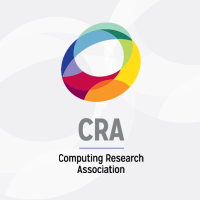Biden Administration Seeks to Boost Innovation and Jobs Through Tech Hubs Across the United States
By Matt Hazenbush, Director of Communications
In a move to foster innovation and create job opportunities across the nation, the Biden Administration recently designated 31 communities as Regional Technology and Innovation Hubs, under the Tech Hubs Program. This initiative, established as part of the CHIPS and Science Act, aims to support regional innovation centers that leverage their unique strengths, regional industries, and geographical locations to build and scale their Innovation.
These hubs are intended to transform the economy, strengthen diversity and equity, create high-paying jobs, and uplift communities. This program is considered a key component of the CHIPS and Science Act and plays a crucial role in advancing the country’s leadership in science and innovation.
“It is exciting to see a wide range of science disciplines represented in the Tech Hubs Program, along with the increasing impact of computing and AI technologies on these disciplines,” said Vivek Sarkar, chair of the School of Computer Science at Georgia Institute of Technology and co-chair of the CRA-Industry committee. “This initiative offers opportunities for everyone engaged with computing and AI research in academia, industry, and national labs to partner with regional Tech Hubs and contribute to workforce advancement in their local communities.
The program also includes Strategy Development Grants awarded to 29 communities across the country. These grants will strengthen the capabilities of these communities, making them potential candidates for a hub designation in the future.
A noteworthy aspect of this initiative is its commitment to addressing disparities in access to quality STEM education, opportunities, and investment in economically disadvantaged communities. By doing so, it seeks to create a more inclusive and vibrant innovation landscape.
“By emphasizing regional opportunities the Tech Hubs will stimulate economic growth where it is needed most, while developing technologies that speak to regional geographic concerns and build on local expertise,” said Stephanie Forrest, Biodesign Center Director and Professor of Computer Science at Arizona State University, External Faculty at the Santa Fe Institute, and Chair of the CRA Government Affairs Committee.
“The range of projects is truly impressive, with everything from hubs to help mineral-rich regions of the country provide processed materials for next-generation energy systems to projects aimed at re-shoring pharmaceutical manufacturing. These projects speak to urgent national priorities and will provide education and workforce development in economically disadvantaged communities.”
With these 31 hubs dispersed across 32 states and Puerto Rico, the U.S. is taking action to revitalize its leadership in science and technology, bringing innovation and economic growth to all corners of the nation. As the program unfolds, it offers exciting opportunities for collaboration and advancement in the world of technology and innovation.









